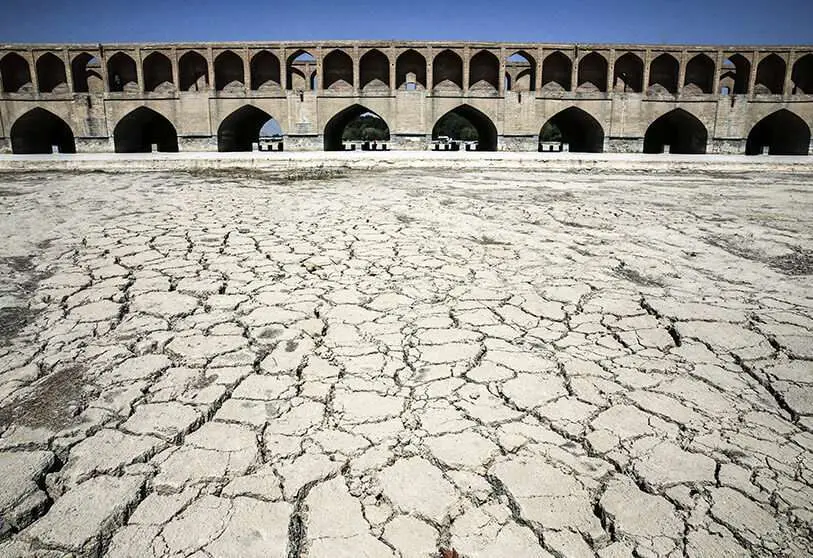Drought fuels protests in Iran

Iran is facing an unprecedented environmental crisis. In little more than a year, the Islamic Republic has endured deadly flash floods, droughts that have ruined crops, sand and dust storms and heat waves that have reached 48 degrees Celsius. All of them probably fuelled by climate change. Iranians are getting desperate and finding help for all their problems is a very difficult task. Such floods earlier this year left 21 dead and destroyed homes and buildings across Iran according to the Red Crescent society and reports from state authorities.
Along with Yemen, Libya and Eritrea, Iran was one of four countries that also failed to sign the 2015 Paris Agreement. This international isolation and a broader lack of government commitment and engagement to address environmental risks are complicating efforts to deal with such climate disasters. Sustainability is being undermined in all aspects of environmental issues at the expense of future generations.
The United Nations Office for the Coordination of Humanitarian Affairs (UNOCHA) said that UN disaster management teams can only be activated to respond to disasters at the request of a state. "In the Iran floods of January 2022, no official request was made," said a representative of UNOCHA's humanitarian advisory team. This was not the case in 2019 when the UN office did get involved and prepared a response plan and appeal for funding in coordination with the relevant authorities.

Examples like that of Khodadad, 56, a livestock farmer in Argun village whose land was washed away in the July floods, are found throughout the territory. Khodadad says, as reported by Al-Arab, that his pleas to the government were rejected after 170 of the 200 head of cattle he owned died. Fearing reprisals from the government, he asked that only his first name be given. The Iranian environmental and activist community has tried to intervene to exert pressure, sometimes with disastrous results, due to the inaction of the executive.
Kaveh Mandini, former deputy director of Iran's Department of Environment, commented that environmental issues have become politicised and that environmental defenders are subject to state repression. Of the 63 activists who were arrested in 2018, according to Amnesty International, at least seven of them worked for the Persian Wilfdire Heritage Foundation and were sentenced to 10 years in prison on charges of conspiracy to commit espionage, their lawyers said in statements.
With Iran often blaming foreign countries for protests, supreme leader Ayatollah Ali Khamenei said last year that Iranians rallying over water shortages in the country's southwest should be careful not to give enemies the opportunity to "conspire against the interests of the regime or the state". But he also added that protesters should not be criticised for their movements, and that "their problems should be addressed".

Water shortages affect all segments of society, from urban households to farming communities, according to a report by 30 of the country's 31 provinces. The previous year was one of the driest in 50 years, which has led to large protests in several of the country's major cities.
Mandini points to the government's responsibility for water shortages in recent years due to unsustainable projects pursued by the authorities with no control over the level of inflow of groundwater and surface water levels. "Iran is water bankrupt," he said.
As Iran has always been a country with a predominantly arid and desert climate, water has always been a priority for its people, who have a long tradition of sustainable water management. Across the country, infrastructure, mega-dams, have been expanded to cope with these new demographic and industrial demands, although the environmental consequences have been largely overlooked. Likewise, Nature magazine stated in 2021 that the origin of the depletion of Iran's water reserves is anthropogenic, i.e. caused by human activity.
With upcoming UN climate change conferences in North Africa and the Middle East, Egypt this year and Dubai in 2023, concerns about water scarcity in the region may move to the global stage, reports Adeltraud Günther, director of the United Nations University Institute for Integrated Management of Material and Resource Flows.







